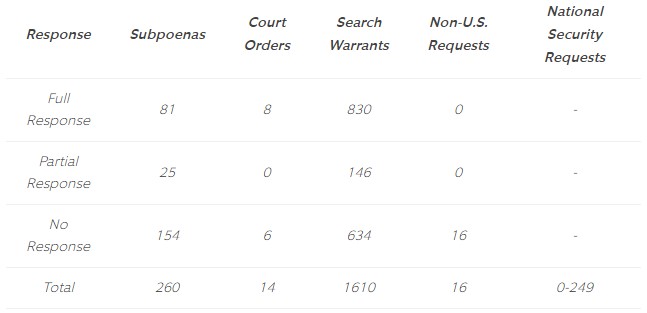
Amazon Ring Is Currently Used by Over 2,000 Police and Fire Departments in the U.S.
- The partnership program between Ring and Police departments in the U.S. continues to flourish.
- At the time, only two U.S. states don’t have any departments taking part in the program.
- Some official numbers could indicate the size of the data exchange, but these may be just a portion.
The fact that there’s a special type of collaboration between the American law enforcement agencies and Amazon’s Ring is well-documented and equally analyzed before. Although many warn about the privacy implications and the responsibility with which sensitive data is collected, handled, and used, it seems that as long as no forbidding legislation is in place, nothing is stopping the problem from achieving an even greater magnitude. As the Financial Times report, currently, there are over 2,000 police and fire departments in the United States partnering with Ring.
This means that owners of Ring cameras may choose to take part in special “neighborhood watch” programs, which basically allow law enforcement agents access to the live feeds of their devices. As these cameras are fixed on smart doorbells, they point to the public road, so anything may be captured, from the plates of a passing car to a person taking their dog out for a walk. But it’s not only about the live feed. The footage from Ring cams is often helpful in investigations, where the police know that something happened on a location but are missing the specifics.
According to the figures shared in the FT report, in 2018, 40 departments were using the Ring security camera network for their investigations. In 2019, this number grew to 703, and in 2020, it exploded to 2,014 departments.
Right now, the only U.S. states that don’t have any departments partnering with Ring are Montana and Wyoming. Maybe this is because these two states are so sparsely populated that partnering with Ring's network wouldn’t be of much use there anyway.
From Ring’s side, we have the latest transparency report informing us that the police has submitted a total of 1,610 search warrants in 2020, of which 50% were served. And then there are also another 260 subpoenas, 14 court orders, and 16 requests from outside the U.S. Again, some of these were served fully, others partially, and some got rejected, as shown below.
As we have analyzed in the past, though, warrants aren’t painting the full picture of the data trade. Ring employees have previously admitted to training police agents to persuade people to hand over footage to them without a warrant.
As mentioned in the same reports, when this approach failed, the police could ask Amazon to send them the footage directly from the cloud. So, one may suggest that the numbers given in Ring’s report are just the tip of the iceberg of what’s really going on.







